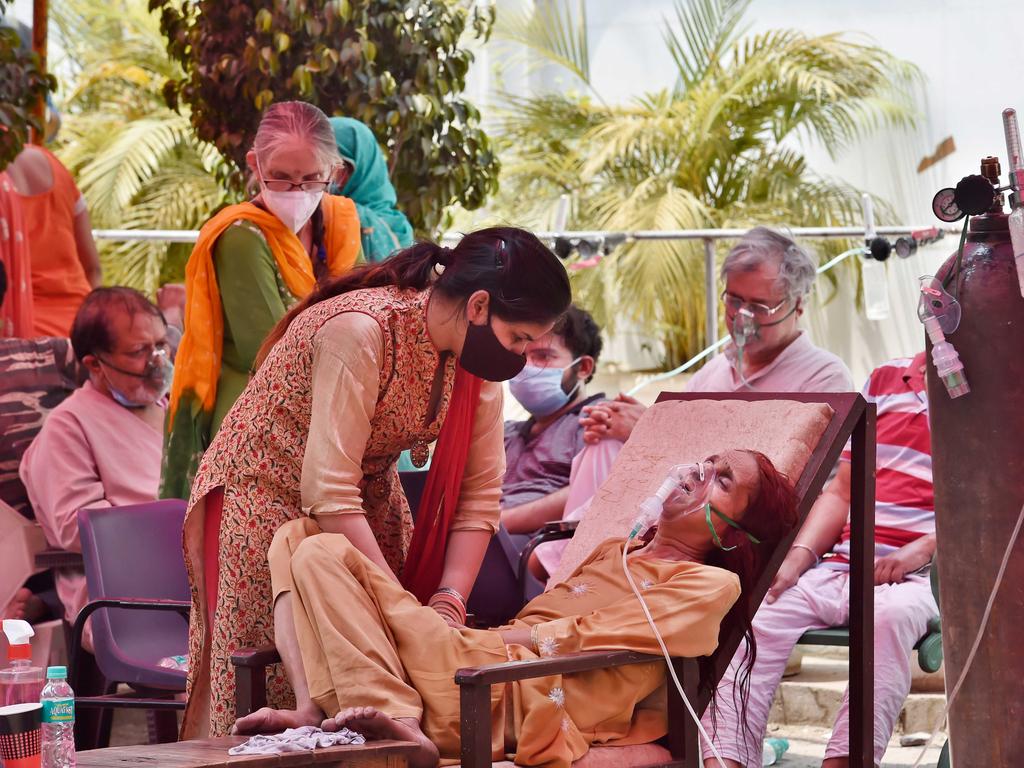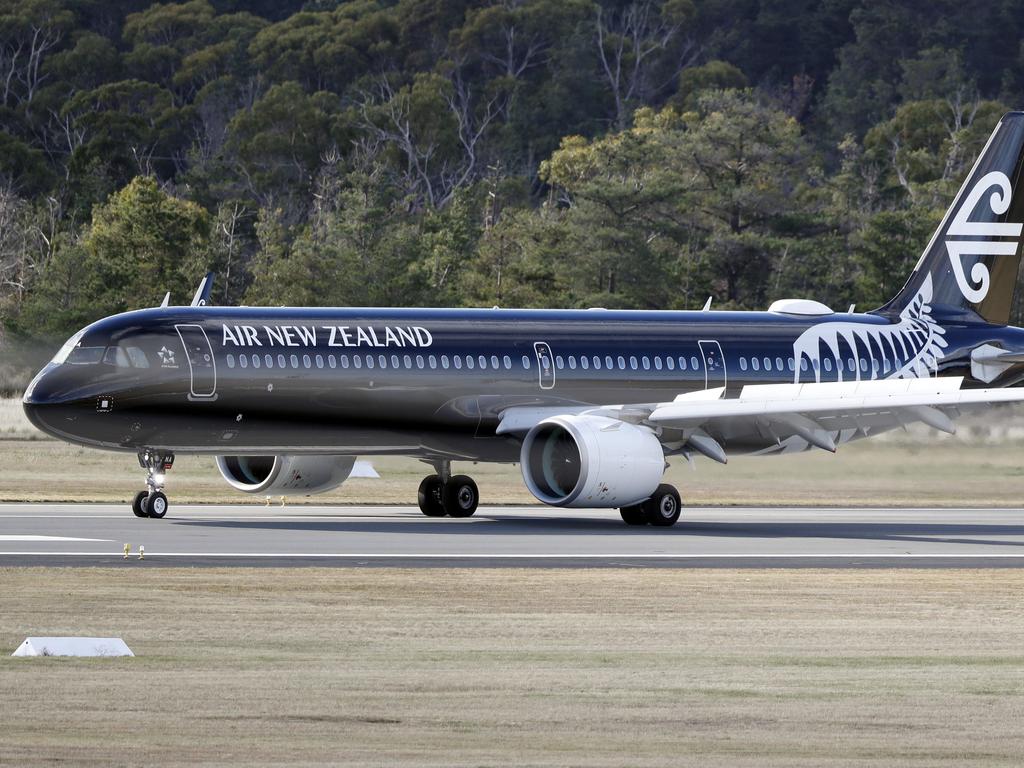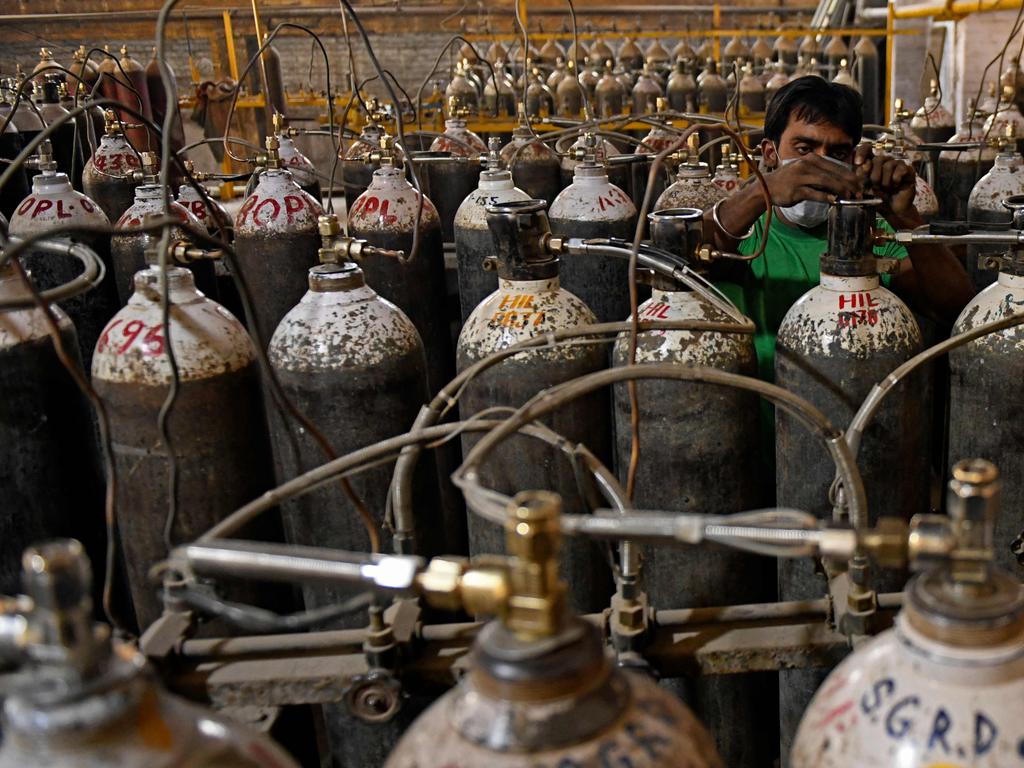Covid spears the white tiger of India’s economy
From call centres, to manufacturing and complex IT functions all outsourced to India by the West, the ripple effect of this humanitarian crisis will be felt far and wide.
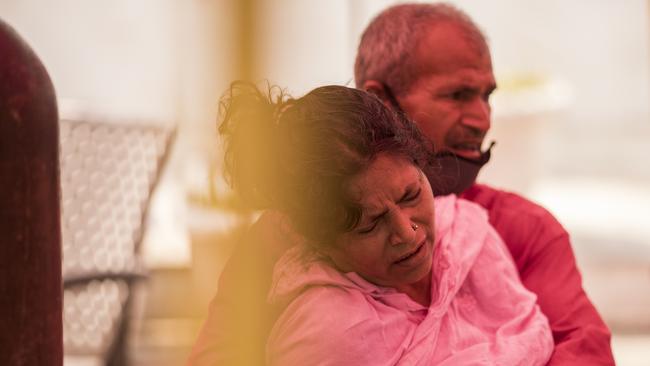
Nikhil Kapur thought life was back to normal. His restaurant in Rohini, northwest of Delhi, had bounced back after last year’s Indian lockdown. By early February, it was at pre-Covid-19 levels.
Then tragedy struck. The second wave of coronavirus gripping India has been particularly cruel, with at least 350,000 infections a day in the past week and more than 200,000 deaths in total. “My three employees have died, people are not coming to market and I don’t see things improving a bit,” said Kapur, 28.
In the usually bustling shopping centre nearby, only a grocer and two chemists were trading last week. It was a similar picture down the road at the metro station. Normally a queue of pedal-powered rickshaws would be waiting to pick up passengers, but on one day last week, only one empty vehicle could be spotted. The migrant workers who push the pedals have returned to their villages.
The humanitarian crisis ripping through India risks damaging the capitalist boom illustrated by the Netflix film The White Tiger, which tells the story of a lowly taxi driver who escapes poverty thanks to his entrepreneurial drive.
Lockdowns have financial repercussions, not just for India’s 1.3 billion population but also farther afield. Britain has a longstanding economic relationship with the nation, which was a colony until 1947.
Big companies as diverse as BT, caterer Compass and advertising giant WPP employ thousands in the country. Security company G4S said it was providing its 100,000 employees with “enhanced health, safety and wellbeing support”. Thanks to its millions of highly educated and English-speaking people, Indian call centres handle queries for many British companies, while back-office processing and increasingly complex IT functions are often outsourced there.
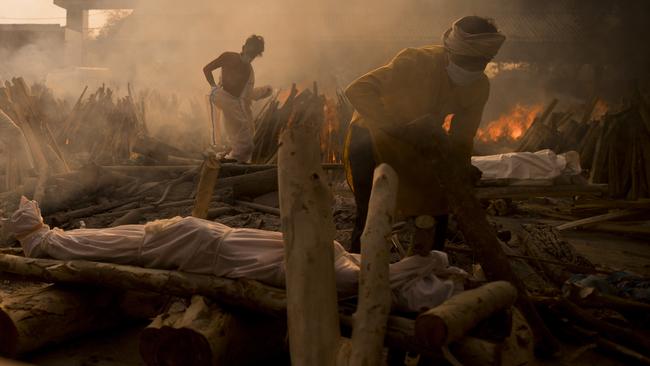
India accounts for about 40 per cent of all operations outsourced from Britain.
Analysts are also watching for any impact on the supply chain for items such as clothing. Clive Black at Shore Capital said: “There’s no doubt British companies dependent on goods coming from India are very, very worried.”
Had he not been forced to cancel his visit because of the health crisis, Boris Johnson would have been in India last week to forge greater ties. As well as offering a consumer market and a workforce for British companies, India is a vital inward investor in Britain’s car-making and steel industries (Tata), and Covid-19 vaccine manufacturing (Wockhardt).
The British government estimates that each nation supports 500,000 jobs in the other’s country. When UK trade secretary Liz Truss visited India on a mission in February, she agreed an enhanced partnership to lay the groundwork for a free trade agreement. India was a key part of the government’s post-Brexit vision.
For now, that is on the back burner. The immediate focus is the fallout from the current crisis. Indian-born Lord Bilimoria, president of the CBI and co-founder of Cobra Beer, last week co-ordinated an effort by UK businesses to get oxygen and supplies of Covid-19 treatments to the struggling population. Many of his relatives still live in India.
British groups with operations in the country insist that they are working hard to keep local employees safe. Compass, which employs 16,500 there, says it is testing kitchen staff and paying for the accommodation of any who quarantine.
Alan Jope, chief executive of Marmite owner Unilever, said last week that it was trying to care for its 21,000 staff in India: “We are in the business of procuring hospital beds, oxygen supplies and ambulances for our people and their families.”
Barclays, which has its largest number of employees outside the UK in India, has brought back some work to relieve pressure on staff; its charitable foundation has donated pounds 1 million for medical supplies. Standard Chartered said it was sourcing oxygen for staff - 800 of 20,000 have contracted the virus - and might shift some back-office work to other locations.
NatWest employs 13,000 in India and is donating to charities. Last week British Airways stopped routing calls through its Dehli call centre. “[Staff] safety is our absolute focus,” the airline said.
JCB, which employs 6,500 in India, has closed manufacturing sites in Delhi, Pune and Jaipur until May 10. “While some components for British factories are supplied by JCB India, there will be no immediate impact on UK plants,” it said.
London-listed Camellia, which runs 38 tea estates, estimates that nearly a third of its 35,000 employees have been vaccinated. For now, tea supplies appear safe.
WPP, which employs 8,000, has had staff working from home since the first lockdown last year. “We are focused much more on our people and their wellbeing than on the immediate business challenges,” the company said.
The financial impact on WPP has so far been limited. In its first-quarter results last week, it said sales in India were down 0.5 per cent, making it the only one of its top five markets to be in decline. But WPP said it was “more cautious looking ahead, given the inherent uncertainty and very challenging circumstances”.
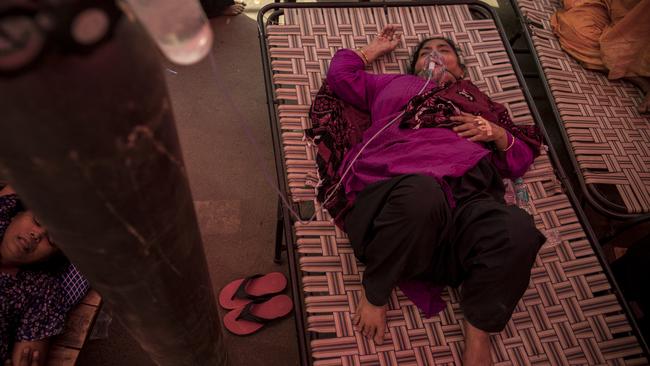
The outsourcing industry and the wider information technology industry is watching the situation closely. A year ago, some 4 million working in the IT sector - which accounts for 8 per cent of India’s GDP - needed to be set up at home. There were some initial problems. National Savings & Investments, backed by the British government, was among those that had to shut back-office sites in India, but it has since increased capacity in Chennai and also added staff in the UK.
But Keshav Murugesh, chief executive of New York-listed WNS, which handles outsourcing for the likes of Virgin Atlantic, said the industry was prepared for the latest lockdown. “In spite of all the uncertainty - the situation is bad - this sector is very stable, is delivering well and is well prepared,” he said.
Harder to gauge is the potential for mass staff absences, currently running at about 15 to 20 per cent - although in some teams it is beginning to reach 50 per cent, said Kerry Hallard, chief executive of the Global Sourcing Association.
Bilimoria does not believe that the situation should end ambitions to quadruple bilateral trade between Britain and India, which currently stand at about pounds 24 billion both ways. “That’s a huge amount of potential, but it’s not just the trade - it’s also investment,” he said.
During prime minister Narendra Modi’s first term of office, India claimed the mantle of the world’s fastest-growing economy from China. As his second term started in 2019, that prize was lost. Covid hammered the economy last year, and while the International Monetary Fund has forecast 12.5 per cent annual growth for India this year - making it the fast-growing big economy again - independent economists are reviewing their predictions in light of the latest Covid wave.
Prakash Sakpal, a Singapore-based economist for ING bank, downgraded his 2021-22 GDP forecast from 9.2 to 7.8 per cent this month. “Given the state of the pandemic, further ... downgrades will become inevitable. I envisage a worst-case scenario of no growth at all in the current year.”
As in other economies, however, Indian consumers - who contribute 60 per cent of GDP - have started to adapt. Tanvee Gupta Jain, an economist at UBS in Mumbai, said in her base case she expected activity to be largely back to normal by July. While lockdown restrictions “are likely to dampen economic activity ... the impact will be much lower than in 2020 as households and businesses have adjusted to the new normal”.
Anubhuti Sahay, head of South Asia economic research at Standard Chartered, believes that the recovery of other countries could also provide hope for India. “Better global growth, especially in major economies like the US, Europe and China - with better vaccination progress and contained infections - could help support demand,” he said.
That might boost exporters but it will provide little comfort for India’s sole traders - a vast part of the economy. Back on the outskirts of Delhi, Ashish Bhatia, 48, normally runs a lingerie outlet in a small neighbourhood market. But like many others, his shop is closed. “People are so scared,” he said. “Who thinks about buying lingerie in such times?”

